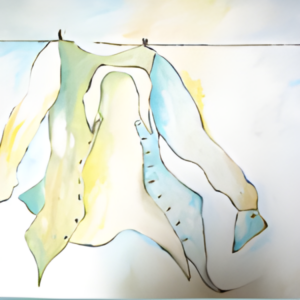We don’t look closely, we don’t listen very carefully. We don’t let the moment go deep enough into us, but think our way through life; that’s why we are often driven or latently dissatisfied. When we feel our way through life, moment to moment, we will be alive again, like when we were a child. We didn’t think there was anything wrong with us. We were deeply immersed in the moment of play. Then we were told to stop dreaming, to be sensible, even though the world never was and never will be. When we start to let go of our thoughts and stop seeing them as real, we are free. Then we have realised the most important thing that is necessary to overcome all attachments. Thus we automatically become more and more what we are in our essence. The unadulterated, natural state of being becomes the source of our realisation and aliveness. Then we discover the natural qualities of the transpersonal self:
- Compassion for all that exists.
- Deep contentment as our innermost nature.
- Being able to fully accept and let go of each moment.
- The vastness and ecstasy of universal consciousness flowing through everything and contemplating the creation of life from a great stillness.
Life becomes deeper the more mindful we are. But the depth dimension of mindfulness is not an intellectual concept, it arises from the transformation of the whole being. Mindfulness does not arise when we make an effort, but when we encounter reality nakedly and innocently. When the poet Rainer Maria Rilke was in a depressive crisis, he met the French sculptor Auguste Rodin. He recognised that Rilke, a young poet at the time, was stuck in a depression. He was unable to produce anything, sitting for days in front of a blank sheet of paper, although he wanted to write a biography of Rodin. Rodin sent him to the Paris zoo with the task of choosing some animal and doing nothing but look at it for days. Rilke chose a panther that was trapped in a small iron cage, endlessly pacing back and forth in a confined space. The panther was the symbol of Rilke’s inner state at that time. He felt imprisoned, blocked in the prison of his ego. By not avoiding this state, but looking at it with the most intense attentiveness, he overcame his depression and created one of his most famous poems:
The Panther
“His gaze has grown so weary from the passing of the bars,
that he no longer holds anything.
He feels as if there were a thousand bars
and behind a thousand bars no world.
The soft gait of supple, strong steps,
turning in the smallest of circles,
is like a dance of power around a centre,
in which a great will stands stunned.
Only sometimes does the curtain of the pupil silently slide open -.
Then an image enters,
passes through the tense silence of the limbs –
and ceases to be in the heart.”
Rilke describes here the great archetypal drama of being human. Raised by a mother who wanted to make him a girl for the first 10 years of his life, subsequently forced by a father to attend a Prussian military academy, he experienced the complete denial of his very own nature. He managed to heal this deep split by expressing it in his poems. When we look deeply at something, it dissolves. Dogen Zenji describes this process of finding oneself and forgetting oneself as follows: “To fathom the Buddha Way is to fathom oneself. To fathom oneself is to forget oneself. Forgetting oneself means being one with the ten thousand things. That is enlightenment.” Dogen Zenji – 13th century Japanese Zen monk.
This apparent paradox of self-discovery and self-forgetting often reveals itself in the advanced stages of consciousness development: the emptiness and non-permanence of all being. As soon as we look at things with deep attention, we realise their insubstantiality. Thoughts are perceived for what they really are: Interpretations, interpretations, symbols with which we try to explain the world to ourselves. As soon as we meet what is in each moment with deep attention, accept it without resistance, look at it intensely and allow it, it begins to change and the next phase of life can begin.
The Greeks called this natural growth process of life enantiadromia, the inversion into the opposite. Illness becomes healing, defeat becomes success, separation becomes unity. When we give up constant (after)thinking, recognise its futility, a depth dimension of life reveals itself, in which every moment is sufficient unto itself. The discipline of deep attention leads to mindfulness. Our natural being reveals itself the more mindful we are. Every moment is suitable for this, even now. Our identity then no longer hangs on any beliefs, fears, desires or worries, but we flow through time with deep mindfulness. This creates an ever more intimate encounter with reality, with the magic of life. Essentials are effortlessly recognised, non-essentials simply fall away.
Thank you for this moment of mindfulness

